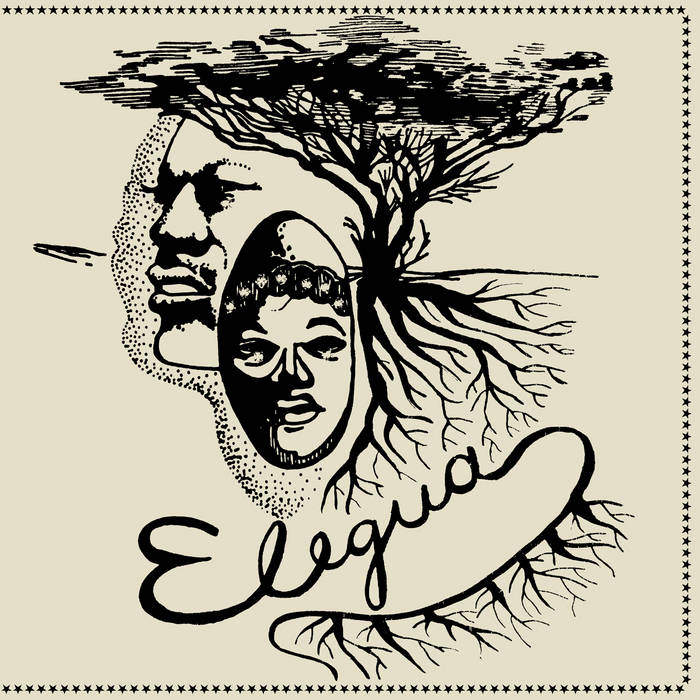The Breakdown
After the ultra-hip Virgilio Armas re-issues last year Toronto crate curators extraordinaire We Are Busy Bodies are on the case again, excavating the rich seams of Latin-jazz heritage with an enticing Venezuelan focus. The result of their latest exploration is the re-release on May 19th of Latin jazz collective Elegua’s significant and exceptionally sought after self-titled album.
Originally out in 1977 as a private pressing, Elegua captured the Boston based big band with their foot hard down. Formed by trumpeter Gustavo Aranguren whilst studying at Boston College of Music and before he graduated to bigger things (e.g. Alfredito Linares, Esperanto, Irakere), the Elegua ensemble were a group of primarily Venezuelan musicians resident in the New England city, united by a passion for the preservation and progression of Latin music. It’s an album that’s long been whispered about, representing a vibrant symbol of those transitional times when Latin beat music began to seriously infiltrate the US cultural eco-system.
That cross fertilisation of ideas and intuition goes on display from the first glowing bars of electric piano which welcome the album’s opener Tell Me A Bed Time Story. Taking on a Herbie Hancock tune from the icon’s 1969 ‘Fat Albert Rotunda’ album, a record that announced his shift from Blue Note purity to jazz-funkiness, takes some daring. It’s like working with an unpredictable source, exploring a tune that was also searching for something new. Still Elegua show that they had the combined musicality to more than deal with such double jeopardy, keeping the original’s shimmering credentials but adding more restless urgency to the scene. So while Herbie’s elegant soulful melody remains central to this version, the complex network of syncopated stops, starts, tempo shifts and layered harmonies brings a new dimension. The dance here is less refined, pumped with a definitive Latin cut and thrust.
Credit for the orchestral sophistication of this introduction to the Elegua sound must be given to keyboardist Amuni Nazer, who later found the US hit-parade playing with the Puerto-Rican disco star Celi Bee. Such stories add emotional resonance to an album that may have been Elegua’s only release but which significantly represents a turning point for several new musical personalities determined to forge ahead and make an impact. Such untapped energy crackles through the brisk and breezy Mambo Ajena, composed and arranged by bassist Rodolfo Gandia who became better known as the consummate musician Rucco Gandia, a player with Dizzy, Bill Frisell, Puerto Rican singer Danny Rivera and nineties rock band Radio Pirata all on his diverse CV. Clearly his track on Elegua shows where he was heading as he locks the number into an agile skipping bassline plus zig-zagging cross rhythm. All the afro-cuban big band motifs are here, the thrusting horn jabs and muscular montuno chord patterns but it’s with the free-wheeling solos that the jazz spirit blasts free of convention.
Holding such mercurial talents together to produce an album as focused and mature as Elegua underlines the qualities of the nascent ensemble’s leader Gustavo Aranguren. As well as maintaining the group’s motivation and contributing exemplary wow-factor trumpet, Aranguren wrote and arranged what are probably the core tracks on the release. Extasis shimmers with sultry modernism and thrills with some forward-thinking salsa expansion. Yes there’s the expected percussive fluency, the strident unison vocals and those sky-pointing horns but Extasis delivers something that looms like a city skyline and bustles like a home-time highway. The unpredictability is fabulous, as the tune curves between looseness and that lean familiar Latin-dance structure.
Aranguren then takes the daring up a notch on the ambitious Planeta Pimiento which swaggers even closer to the open-ended unknowns of an extended jam. The chunky rhumba may tick away reassuringly and those horn fanfares might map out the route but here the main players all take a slot to bring their own voice. What makes the track stand out though is not their indisputable individual inventiveness but the connectivity between their solos and the overall vibe. From keys to congas, trumpet, sax and through to trombone each one flies free but always glides back to cut’s syncopated home.
As the album liner notes confirm, Elegua saw their music as making a contribution to ’… unearth Latin music from the “barrio” into the world so that everyone may enjoy and receive our message of change and renovation’. From that perspective the release commands muso-significance and its resurrection from obscurity is something to celebrate. So does that mean Elegua is primarily a curio, an artefact, a document? Well take one listen to the album’s dynamic, irresistible groves and you will have your answer. This is a record that strides out beyond history and makes its mark any time, any place.
Get your copy of Elegua’s self-titled album from your local record shop of direct from We Are Busy Bodies HERE

















No Comment